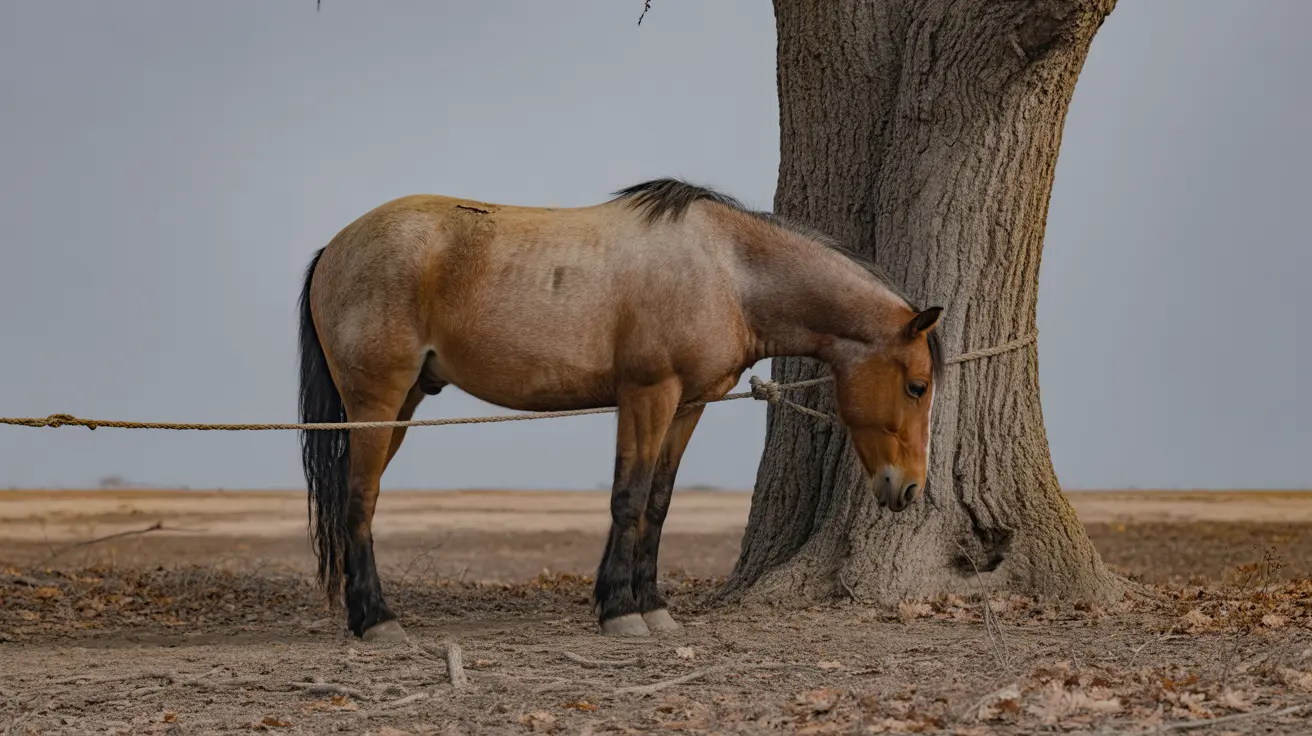Details of the Incident
Caldwell County animal enforcement officers responded to a concerning situation where they discovered a horse in severe distress. The animal was found tied to a tree behind a residential property, showing clear signs of malnutrition and neglect. Despite rescue attempts, the horse's condition proved too severe, ultimately leading to its death.
Signs of Horse Neglect
While this case represents an extreme example, there are several common indicators that may signal a horse is being neglected:
- Visible ribs, hip bones, and spine
- Dull, rough coat
- Lethargy and weakness
- Untreated wounds or injuries
- Overgrown or neglected hooves
Animal Welfare Education and Prevention
This tragic incident serves as a sobering reminder of the critical importance of proper horse care and animal welfare knowledge. Responsible horse ownership requires:
- Regular veterinary care
- Proper nutrition and feeding schedules
- Clean, adequate shelter
- Daily exercise and monitoring
- Regular hoof care
The Dangers of Refeeding Syndrome
When dealing with malnourished horses, proper rehabilitation must be carefully managed. Refeeding syndrome can occur when nutrition is reintroduced too quickly to a starved animal, potentially causing severe complications or death.
Legal Framework and Enforcement
Under North Carolina animal cruelty laws, cases of severe neglect can result in felony charges. The Caldwell County animal enforcement team's swift action in this case demonstrates the serious approach authorities take toward animal welfare violations.
Frequently Asked Questions
What are the legal consequences for animal cruelty in North Carolina?
Animal cruelty in North Carolina can be charged as either a misdemeanor or felony, depending on the severity of the case. Felony charges can result in significant fines and potential imprisonment.
How do I report animal neglect or cruelty in my local area?
If you suspect animal neglect or cruelty, contact your local animal control office, law enforcement, or humane society immediately. Document any evidence safely from a distance, and be prepared to provide specific details about the situation.
What are the signs of neglect in horses, and how can I prevent it?
Key signs of horse neglect include poor body condition, malnutrition, untreated medical issues, and inadequate shelter. Prevention involves proper education in horse care, regular veterinary check-ups, and maintaining appropriate feeding and exercise routines.
Taking Action for Animal Welfare
This unfortunate incident serves as a crucial reminder of our collective responsibility toward animal welfare. For those interested in making a difference, consider:
- Supporting local animal welfare organizations
- Reporting suspected cases of animal abuse or neglect
- Educating others about proper animal care
- Advocating for strong animal protection laws
Remember, preventing animal cruelty requires community vigilance and a commitment to ensuring all animals receive proper care and protection under the law.






